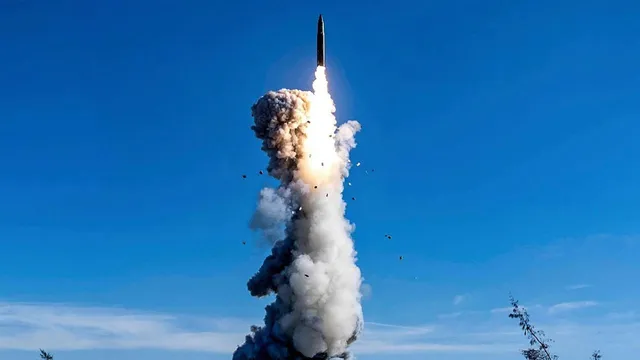
Xi Jinping's Fear of Soviet-Style Collapse in China
2024-09-30 00:00- A large structure was erected in Tiananmen Square to celebrate the 75th anniversary of Communist China.
- Xi Jinping is worried about the future of the Communist Party's rule due to economic struggles and rising social tensions.
- The current climate indicates a growing class struggle, posing challenges to the government's stability.
Express your sentiment!
Insights
In late September 2024, a significant structure was erected in Tiananmen Square, Beijing, to celebrate the 75th anniversary of Communist China's founding on October 1st. The structure, resembling a basket of fruit and flowers, symbolizes long life, reflecting the government's desire to project stability and prosperity. However, amidst these celebrations, Xi Jinping, the leader of China, harbors deep concerns about the longevity of the Communist Party's rule. The current economic climate is troubling, with growing resentment among social groups as the economy falters. This discontent is exacerbated by a perceived class struggle, indicating that the social fabric of China is under strain. Xi's fixation on security and control may have long-term implications for the country's stability, particularly in regions like Hong Kong, where he aims to transition from stability to prosperity. The juxtaposition of celebratory displays and underlying societal tensions highlights the precarious balance the Chinese government must maintain to ensure its continued rule.
Contexts
In the wake of the Chinese Communist Party's centennial, the narrative surrounding its history has become increasingly complex. Since its founding, the party has undergone significant transformations, particularly after the tumultuous Maoist era, which lasted from 1949 to 1976. This period is often remembered for its catastrophic events, including widespread famine and the persecution of intellectuals. However, the party has sought to redirect its image since the 1980s, focusing on economic growth and modernization while glossing over its past mistakes. China's economic landscape has evolved dramatically since the Reform and Opening Up period, transitioning from a state-dominated planned economy to a mixed economy. With an average annual growth rate of 10% from 1978 to 2005, China emerged as a global economic powerhouse, boasting a GDP of $2.286 trillion by 2005. Yet, this rapid growth has not come without challenges, as inequality has risen consistently since the 1980s, leading to a stark divide between the wealthy and the poor. As the party celebrates its centennial, it emphasizes a narrative of continuity and stability, with Xi Jinping positioned as the pre-eminent figure in this story. The party's leadership has increasingly drawn on Confucianism and traditional Chinese cultural values to reinforce its legitimacy, while maintaining strict control over the private sector and society at large. This approach has garnered a relatively high level of satisfaction among the populace, despite the lack of democratic movement. In Hong Kong, reflections on the party's anniversary are tinged with a sense of ambivalence. While many in mainland China embrace a modern identity, the legacy of the Mao years remains a point of contention. As the party continues to navigate its complex history, the future of its governance and the potential for reform remain uncertain.